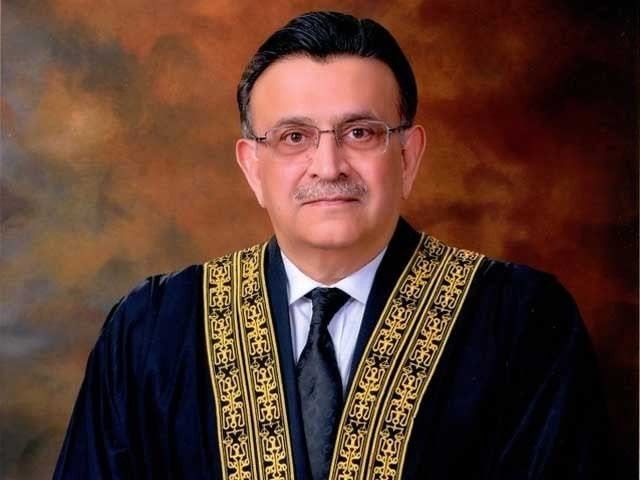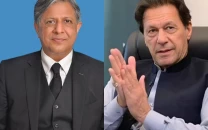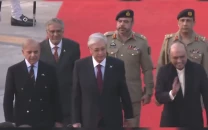CJ justifies suo moto notice over Suri’s ruling
Bench says any party can approach court for redressal of grievances

Supreme Court Justice Ijazul Ahsan on Monday observed that the judges would never allow any disrespect of the judiciary if its judgment was disliked, stressing that the judges had to decide cases in accordance with law and the Constitution.
A five-judge larger bench, headed by Chief Justice Umar Ata Bandial, heard the presidential reference regarding interpretation and scope of the Article 63-A of the Constitution.
Justice Ahsan said that political parties approached the court for the redressal of their grievances.
The bench noted that if any party had any grievance it should approach the court. The chief justice said that the court’s jurisdiction did not apply in case of holding protests in front of the Election Commission of Pakistan (ECP).
Chief Justice Bandial told Babar Awan, the counsel for the Pakistan Tehreek-e-Insaf (PTI), that the Supreme Court should have been approached if the ECP did not implement the apex court’s opinion about the Senate elections.
Read Full text of Supreme Court verdict on NA deputy speaker's ruling
he chief justice also said that the use of suo motu power had been limited. He mentioned that the suo motu notice over the then National Assembly deputy speaker’s ruling on April 3 was taken after consultation with 12 apex court judges.
The chief justice was alluding to the ruling by Qasim Suri, who had rejected the no-confidence motion against then Prime Minister Imran Khan, citing violation of Article 5. Imran used that ruling to dissolve the assembly. However, the apex court struck down the ruling and restored the assembly on April 7.
The apex court had also directed the National Assembly speaker to hold voting on the vote of no confidence. Subsequently, the no-confidence process was completed and the prime minister was voted out. However, former prime minister Imran Khan later started criticising the judiciary.
All the judges agreed that it was a constitutional matter that needed to be taken up by the court, the chief justice said, adding that the court did not take notices on whims and wishes rather the notice was taken because it was a constitutional matter.
During the hearing, Chief Justice Bandial said that the court wanted to give its decision on Article 63-A without any delay. “The interpretation of Article 63-A is necessary for [strengthening] the parliamentary democracy,” he added. “Protection of the Constitution is the duty of this court.”
Chief Justice Bandial asked how the court could announce a verdict on something before its occurrence. “We have recently decided that the suo motu powers should be used with extreme caution,” he said, stressing that the judiciary intervened when the government failed to deliver.
Justice Ahsan said that the reference only pertained to the interpretation of Article 63-A. “The interpretation is implanted in the Centre or the province that does not concern this court,” he said. “The decision of the court will be binding to all the parties.”
Earlier, Pakistan Muslim League-Nawaz (PML-N) lawyer Makhdoom Ali Khan sought general adjournment, saying that he would return to Pakistan on May 15. However, the bench expected that he would return early as the case could not be delayed for that long.
Awan urged the court to read articles 62 and 63 together. He said he would assist the court in the constitutional debate regarding the case. Awan also said that references had already been filed against 26 National Assembly members and 24 Punjab Assembly members who allegedly switched loyalties.
During the hearing, Justice Jamal Khan Mandokhel said that the Constitution did not lay down the period of disqualification on the violation of Article 63-A, but the court could specify that. The additional attorney general said that the attorney general also wanted to give his arguments in the case.
The case was adjourned till 11:30am today (Tuesday).



















COMMENTS
Comments are moderated and generally will be posted if they are on-topic and not abusive.
For more information, please see our Comments FAQ